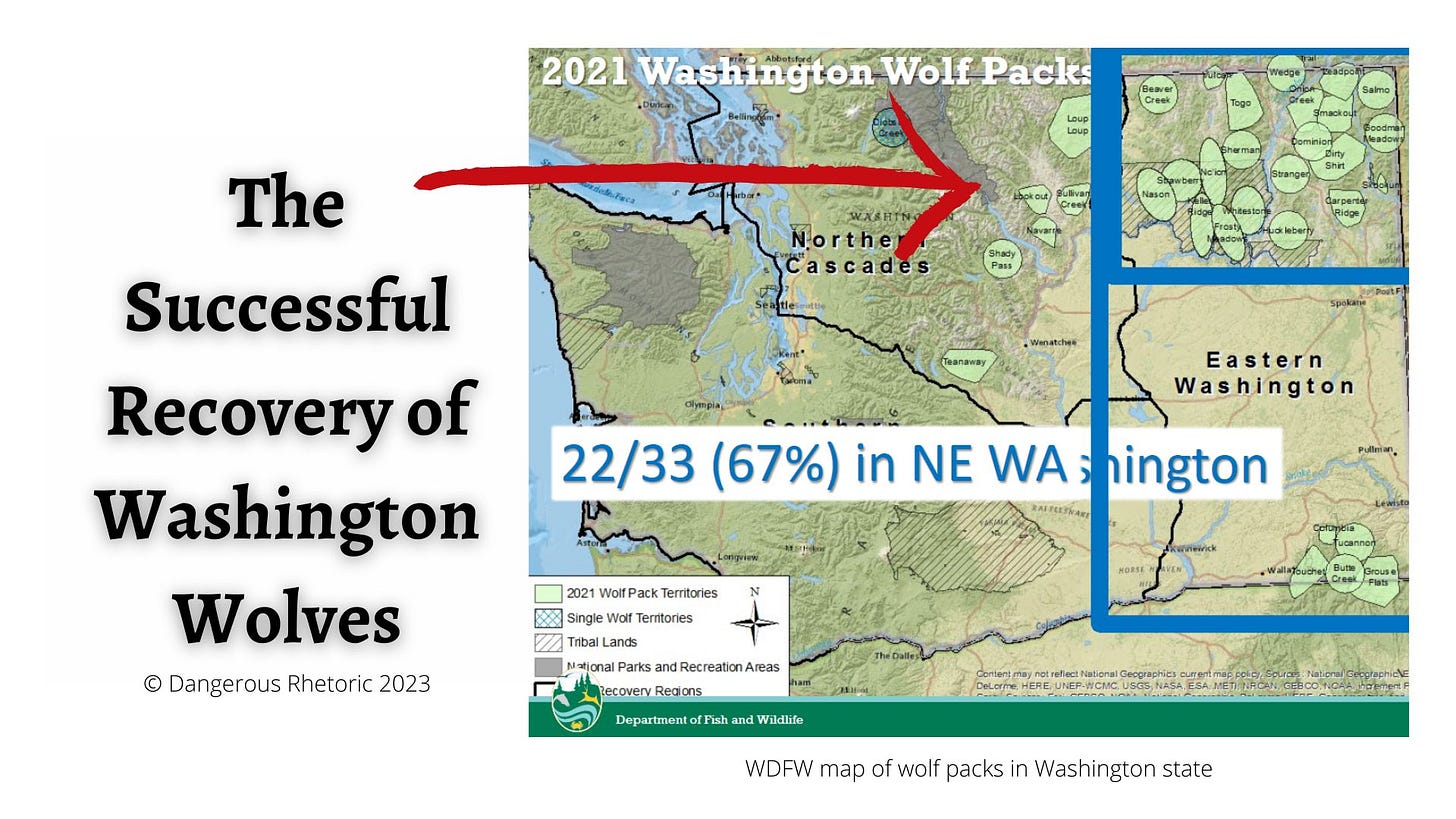When the Washington legislature is in session, I become obsessed with reviewing and reading bills. The daily action in Olympia is rapid-fire, with roughly three to eight committee hearings in each two-hour block. Each committee can cover multiple bills, so people who want to influence a bill by providing public testimony need to quickly review and assess the impact of the bills facing a committee.
Some bills have already been reviewed and analyzed by staff, so it’s possible to read the bill analysis. However, there are so many bills, that not all of them get reviewed by staff before the public hearing. In that case, it is necessary to review the language of the bill. You may have tried to read the law; it’s a great way to cure insomnia. Alternatively, trying to understand a bill may give you a migraine.
So, it’s a surprise to read a bill and find language that is both inspiring and clear. Here is the opening section of Rep. Joel Kretz’s bill, HB 1698 - Providing flexibility for the department of fish and wildlife to collaborate with local governments to manage gray wolves:
“The legislature finds the majestic gray wolf to be a symbol of the wilderness and a marvel to all Washingtonians. The howl of the gray wolf, a song of nature's resilience, epitomizes their role as an apex predator. The gray wolf serves a crucial role in their ecosystem, particularly to species down the food chain.
“This in turn improves biodiversity, offering immense human benefits that are almost too great to be measured. The success in the revival of gray wolf populations in Washington has proven to be one of the most successful recoveries of an extirpated apex species in United States history.
“This should be celebrated and modeled for future recovery efforts. It is important to always look for ways to improve on our processes and further perfect our recovery efforts. In this way, other counties in our state should learn from the more successful counties that have more than achieved the lofty recovery goals placed before them.
In order to maximize recovery efforts for all the vital species in Washington, we must allow those counties that have successfully recovered gray wolf populations to focus their efforts on other animals in danger of extinction.”
Pro-Wildlife and Pro-Conservation
If you had the impression Republicans and cattlemen are anti-wolf, anti-wildlife or anti-environment, I hope this inspiring and poetic language from the 7th District’s cowboy legislator causes you to reconsider your opinion. The people who live in the remote areas of northeast Washington live out here BECAUSE we love the wilderness. We love the challenges of remote living and we work to preserve the ecosystems and wildlife. Every day, we are looking for the point of balance where ALL species, including humans, can co-exist and thrive.
In a work session for the House Agriculture and Natural Resources Committee on Feb. 1, the Department of Fish and Wildlife presented a map which illustrated that 22 of 33 wolf packs in Washington State are located in northeast Washington. Kretz noted, “If you look at the density of wolves in northeast Washington compared to the rest of the state, you can see we have enough wolves in just a few counties to meet the statewide delisting criteria.”
HB 1698 would direct the state Department of Fish and Wildlife to work with local officials to create localized wolf management plans in counties where the wolf population goals have already been met.
Cattle producers in northeast Washington work with the Department of Fish and Wildlife to implement non-lethal deterrence efforts. However, sometimes an aggressive pack needs to be culled. DFW “incrementally removes” wolves, based on the assumption that killing one or two wolves teaches the rest of the pack to stay away from cattle. Fish and Wildlife policy recommends incremental removal within seven days of a predation. Unfortunately, because of the wolves’ protected status, the department is frequently slow to take that step, which leads to more losses as the wolves become bolder.
For Rep. Kretz, HB 1698 is an attempt at providing some measure of relief and assurance for individuals and communities in the 7th Legislative district who have been dealing with the repopulation of wolves and the impacts it has had on their livelihoods and security. “All we're asking for is some localized, specific planning that engages local law enforcement, local officials, tribes, and the local communities that are being impacted,” said Kretz.
Action Items
First, take a minute to visit the House Agriculture Committee sign in page and testify on HB 1698 Gray Wolf Management. If you note your position for the record, please choose “PRO”. Please choose the Written Testimony option and write just a few sentences in support.
Otherwise, you can write directly to the House Agriculture committee members anytime before the bill goes to executive session. The legislators’ email addresses are firstname.lastname@leg.wa.gov.
In the committee’s executive session, legislators will decide if the bill will move on through the legislative process or die in committee. When citizens write about the importance of a bill, the legislators listen. We can encourage them to enact inspiring and positive legislation by staying engaged and communicating positively.
Nancy Churchill is the state committeewoman for the Ferry County Republican Party. She may be reached at DangerousRhetoric@pm.me. The opinions expressed in Dangerous Rhetoric are her own. To learn how to follow the action in Olympia, visit InfluencingOlympia.com.




